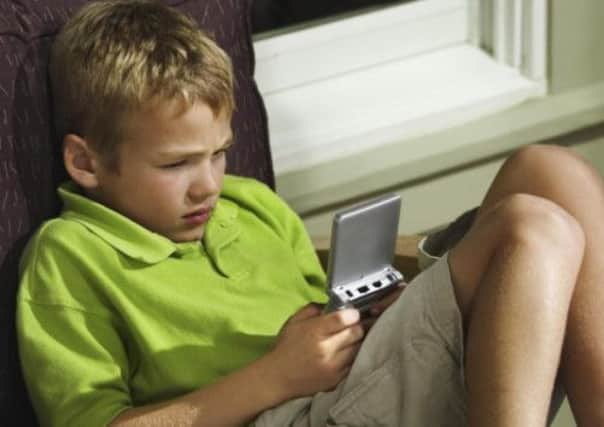Jayne Dowle: Parents lost in virtual maze need a game plan


Games? Credits? Missing money? If you’re reading this and thinking it sounds like eight-year-olds are falling victim to online gambling, don’t worry. It’s not quite that bad. I’m talking about the games which youngsters download onto consoles, tablets, laptops and mobiles.
Buying the game itself is only the first step. It’s the add-ons and extras, the “lives” and those credits that add up. Whether it’s grooming ponies or shooting enemies dead, before they know it, children find themselves in a heady world where anything can be purchased: fresh hay, luxury stables, guns ’n’ ammunition.
Advertisement
Hide AdAdvertisement
Hide AdAnd now the Office of Fair Trading has done a report. And it has found that children are being bullied by their “friends” into purchasing these add-ons.
Many games also blur the distinction between spending virtual currency and real money. And why am I not surprised that the OFT found that some gaming companies employ “potentially unfair and aggressive commercial practices to which children may be particularly susceptible”?
It may all sound pretty disturbing, but let’s not have a moral panic. Let’s use this as an opportunity to think about what we should be doing – as adults, parents and grandparents. Because frankly, we don’t do enough.
While the OFT’s concern about sharp practices is welcome, it won’t get my friend her £200 back. That’s what I mean about taking responsibility.
Advertisement
Hide AdAdvertisement
Hide AdThe authorities can make all the rules they like to protect vulnerable children from being pressurised into buying more lives or coins or monsters or whatever it is makes that must-have game really “fun”. But unless we know what we are dealing with, and arm ourselves with steely resolve, we are lost in a virtual maze.
Most parents are far too soft, and they don’t understand the software. They would rather spend hours having anxious conversations – at the school gate, in the coffee shop, or on that quaint old piece of equipment called a telephone – with each other about the matter than getting to grips with what is going on in their own front room.
It is ridiculously easy to set up a gaming account using your own bank details to fill an online “wallet”. And it doesn’t take a genius child to work out a way of storing and retaining those details for future personal use.
I’m not saying that all children are evil larceners. It’s just that many of them probably won’t even understand the value of “real money” as opposed to shiny golden coins in a video game. Sorry again, but that’s our fault.
Advertisement
Hide AdAdvertisement
Hide AdNow, even if you are the most technophobic parent in the world, surely it is not beyond your capabilities to sit down and have a little chat with the kids about hard cash. Start with just how hard it is to earn it. Don’t pull any punches. Show them the money. Literally show them. If children grow up thinking that money only comes in plastic form, they will never, ever understand its true value.
Next time you drag them along to the supermarket, pay with cash. That will teach them what £100 really looks like.
That’s the easy bit. It’s the technology that is likely to faze us most. When I say technology, I mean the inner workings of whatever game it is your child is playing.
I know, I know. Most of us haven’t got enough spare head-space to deal with the constant technological bombardment we receive from emails, never mind working out the levels in Minecraft, a game my seven-year-old daughter is currently obsessed with.
Advertisement
Hide AdAdvertisement
Hide AdI’m not much bothered about a pile of virtual building blocks that make virtual worlds that er, have something to do with monsters, but I’m forcing myself to take an interest.
When I hear parents moaning about this kind of thing, I always wonder. If they can spend so much time fretting about the levels their child is on for literacy and numeracy, haranguing the teachers and employing private tutors, why can’t they be bothered to sit on the sofa with them for half an hour and have a chat about what they are doing online?
There is no point us parents going into denial. Or trying to turn back the clock. Telling little Harry to go off and read an improving book instead of zapping aliens on screen won’t work. He’ll just think you’re sad and out-of-touch.
And if children spot a weakness in the system, they will exploit it for all it is worth. They learn that online. It’s time we did too.